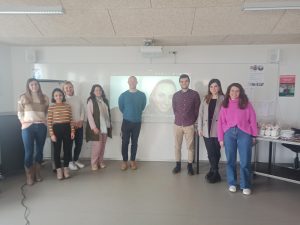
Project Code: 2021-1-DK01-KA220-ADU-000033492

TIPS” aims to create innovative educational tools, for adult educational trainers and parents of children with ASD, with the aim of helping their children learn important life skills through the use of the TIP and two different digital tools. The trainers are expected to acquire theoretical and practical knowledge of autism and be able to plan and implement learning activities for parents.
In 2009, the teaching interaction procedure (TIP) -a systematic social skills teaching package which consists of six steps (Phillips et al. 1974), was first empirically evaluated for individuals diagnosed with ASD (Leaf et al. 2009). The results indicated the TIP was successful at increasing the rate of all of targeted social skills of all the participants. Since this research, there have been several studies that have evaluated the effectiveness of the TIP for teaching individuals diagnosed with ASD (e.g., Dotson et al. 2013; Kassardjian et al. 2013; Leaf et al. 2012a, b).
Within these and other studies, the TIP has shown to be an effective teaching strategy for individuals diagnosed with ASD. Within this context, TIPS project aims to improve the life and personal skills of children with autism and their families. Therefore, considering how important learning social and life skills from an early age is TIPS project has parents of children with ASD as target group and with the following objectives:
Our objectives were: To design, test and publish an innovative Educational package for adult educators that will guide and support their training on parents of children with autism on how to use digital tools- a digital game and digital comic strip- as a teaching tool for the social and life skill development of their children with autism. Both digital tools are based on the evidence-based procedure of teaching interactions.To deliver training courses to directly train educators on how to effectively use the digital tools with children with autism and to deliver these courses to parents of children with autism in order to amplify and perpetuate the ripple effect of those courses


The social skills curriculum addresses adult educators and parents of children with ASD. It contains the information necessary to increase the skills and competences of trainers to educate parents on how to teach their child with ASD important life skills, based on the Teaching Interaction Procedure. It therefore aims at the personal and professional development of educators and parents of children with ASD, taking into consideration:
a) the challenges young children with autism face at home and in the community
b) the life skills young children with autism usually lack (i.e social and communication skills)
c) the absence of comprehensive training curricula that will focus on the professional development of educators to train parents on how to use TIP to teach social skills.
This training curriculum aims to bridge the gap between theory and praxis, since practically it introduces educators and parents in the TIP and familiarises them with the TIPS digital tools
Second project result is an online game developed, as a digital version of a typical turn-based board game which allows two users to play against each other.
The game takes the format of a typical ‘snakes and ladders’ type game where players roll dice, answer questions and make choices about different social situations. The content of the game allows players to have a 30 minute game with each other, and allows them to progress through several social skills identified in the curriculum by answering interactive questions which provide consequences in the game which are focused on real-life decisions and subsequent effects.
The game mirrors real life, in a simulated school environment, to allow the users to make wrong decisions in a safe and secure environment. The game also provides context and answers to the consequences of any choices the players made, good or bad.
Used in combination with the digital game, Interactive Comics serve as a useful tool for parents who implement the TI Procedure with their children with autism. The Interactive comics takes the form of social stories and
contains scenarios of social skills identified in the Curriculum.
By applying gamification and storytelling elements in the process of learning, this project result (PR) aims at creating intrinsically motivating learning experiences for people with autism and their parents. In the scope of this PR, an initial requirements elicitation, both in terms of the learning aspect but also in terms of technical feasibility and implementation, was contacted, helping the consortium select the optimal technical infrastructure in order to implement and deploy these learning resources. Resources that are accessible to different devices and web channels (different browsers, tablets and mobile devices) were a priority for the consortium, while a user-centered design approach was applied in order to identify usability issues, improving the user experience of the proposed learning solution. The learning resources provide a playful approach to presenting the subject matter, while trying to address the learning needs of the target audience.
Train the Trainers learning event is a face-to-face Train the Trainers workshop, which is an efficient and productive method in transferring knowledge and clarifying important issues before the actual training takes place in each country.
Day 1:
Teambuilding activities, ice-breakers, discussion on the objectives and contents of training course PR1 (Curriculum)- presentation and discussion of the results of needs analysis – Presentation of the Curriculum and short introduction to Teaching Interactions Procedure (TIP).
Day 2:
-Understanding autism
-Autism and social skills
-How to implement TIP to teach social skills
Day 3:
– Using the digital tools to implement the TIP
-Evaluation
-Concluding remarks
At the end of the training, all participants received a certificate of attendance.
After the completion of the “train the trainers” workshop all partners provided their feedback on the quality of the content and the structure of the training methodology and curriculum (an evaluation questionnaire was administered to all partners). Based on these comments/feedback, the final version of the training package was developed.
Following Training 1 and the fine-tuning of the training package, a 3-day training course was organised for parents/caregivers of children with ASD (5 learners from each country+ more at local level) who were trained by the already trained (Training 1) trainers.
This way trainers were able to implement and practice what they previously learned. Therefore, Training 2 was also a training opportunity not only for the parents but also for the trainers.
The aim of this training activity was to train parents of children with autism on the TI Procedure and the use of the two digital tools developed within the project, in order to facilitate the social skills in their child(ren) with autism. The profile of participants were parents or carergivers of children of any age who are on the spectrum.
The training had a dual scope:
1. develop learners’ skills and support them in the process of teaching social skills to their children
2. pilot-test the developed materials with a different target group
The schedule included the following activities: Presentation of the curriculum: Introduction to autism and social skills, and to the Teaching Interactions Procedure and how to use it. Familiarising participants the e-learning platform and the digital tools. Practical workshops: practicing how to implement the TIP using the developed digital tools.






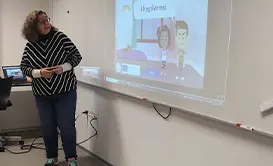
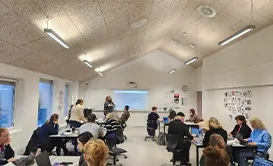
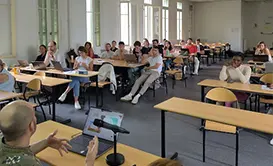
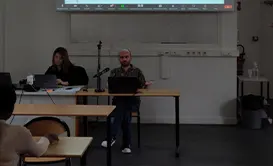
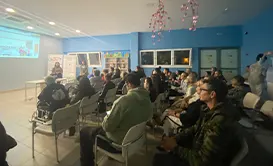
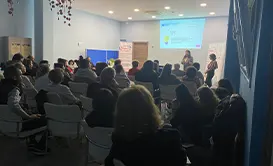
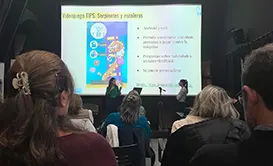
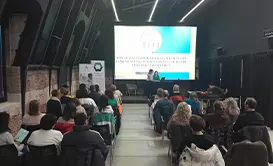
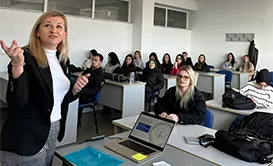
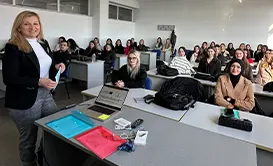
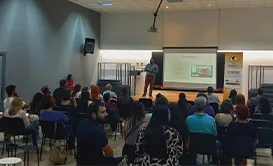
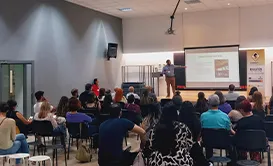
1-2 November 2023
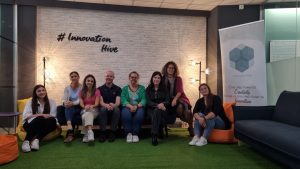
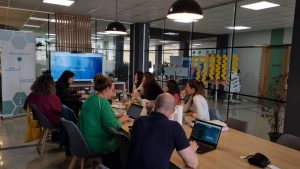
26-28 September 2023
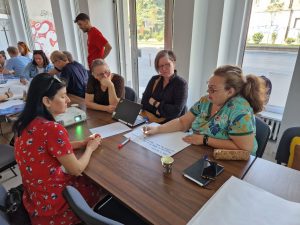
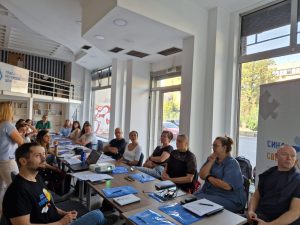
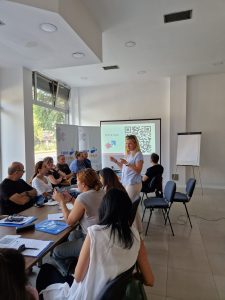
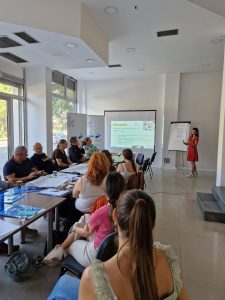
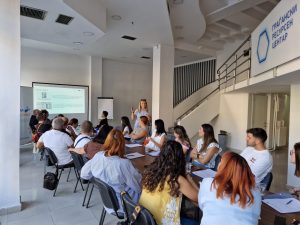
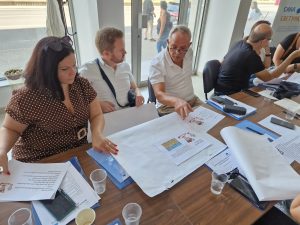
4-6 July 2023
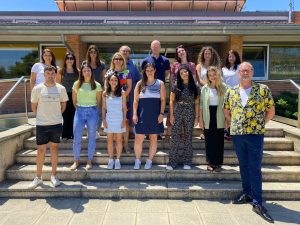
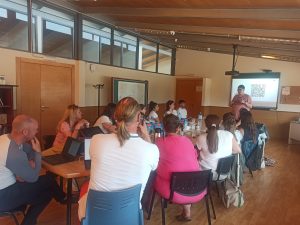
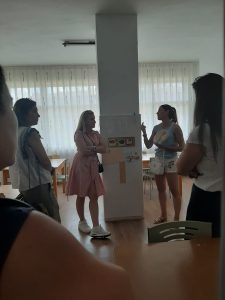
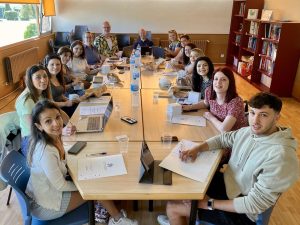
23-24 November 2022
